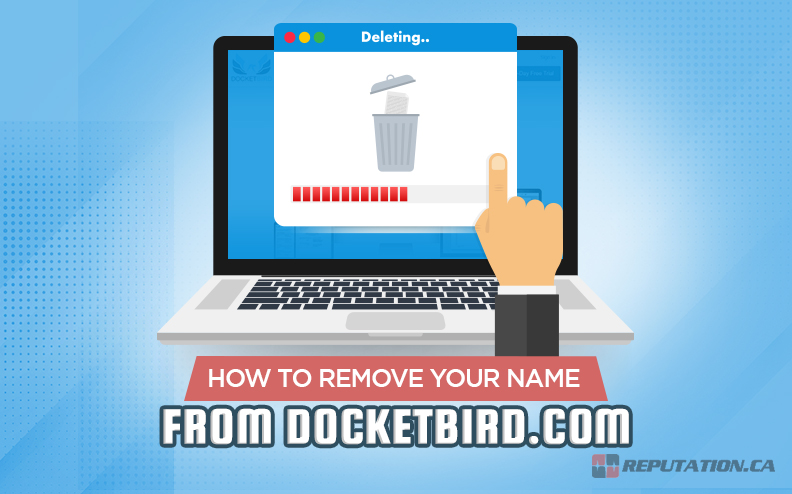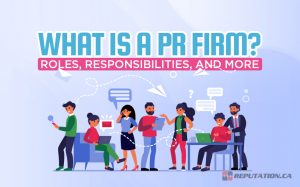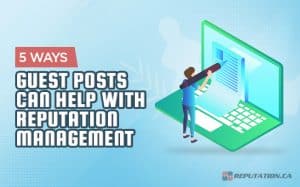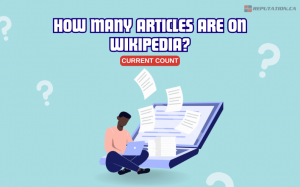The Internet is a vast source of information that almost everyone uses to learn more about the world in which we live. Some people use it to study or learn more about things that interest them, whereas others use it exclusively for recreation. The Internet has evolved to the point where a computer can effectively accomplish everything we used to do in person.
One of the main uses of online services is social media, which allows us to communicate with each other even when on opposite sides of the world. Other people use the Internet to access online storefronts like Amazon or eBay to eliminate the physical requirements of going to a retail store. Unfortunately, the Internet is far from a perfect place and has several risks associated with its use that could reverberate back to our real lives.
One of the main issues with the Internet is that many of our services require us to input information like names and billing addresses. While this is implemented to ensure transactions are executed properly, that information is not always limited to the parties involved. The Internet is rife with information broker websites designed to acquire and distribute information to businesses and other citizens.
Some of these websites were designed with good intentions to help people reconnect or identify threats in their community. Unfortunately, this information is often abused for personal gain, making its existence a serious threat. One website known for providing sensitive information is DocketBird, which has made some people desperate to have their names removed.
What is DocketBird?
If you have never heard of DocketBird, you should not feel too bad since it is a fairly small company with a disproportionately large reach. DocketBird is a document sorting application that provides court data to the general public. DocketBird maintains a database that provides free access to federal cases nationwide.
DocketBird was founded by a patent litigator and software developer who previously worked as a clerk for the United States District Court and the Court of Appeal. This litigator, Todd Kennedy, was frustrated with the tool they were using at the time to access court records. The tool was the United States government’s official tool, Public Access to Court Electronic Records (PACER).
Kennedy felt he and his colleagues were losing too much time through PACER’s interface and decided to make a better tool. In 2014, Kennedy created a beta version of the program that would eventually become DocketBird.
By 2015, DocketBird was released publicly and enabled private citizens and legal employees to access official court records on a federal scale. DocketBird is also marketed as being able to integrate with almost any court database in the country, with deep integration with U.S. federal courts. Through DocketBird, these systems can access important court documents with a more user-friendly interface than PACER’s.
The biggest difference between DocketBird and PACER is that the latter is only accessible to officially licensed clerks and legal staff, whereas DocketBird can be used by private citizens. As a result, the records stored in DocketBird’s database can be acquired by anyone with an account. Typically, DocketBird can only access federal cases, but civil, criminal, bankruptcy, and appellate cases are available in their database.
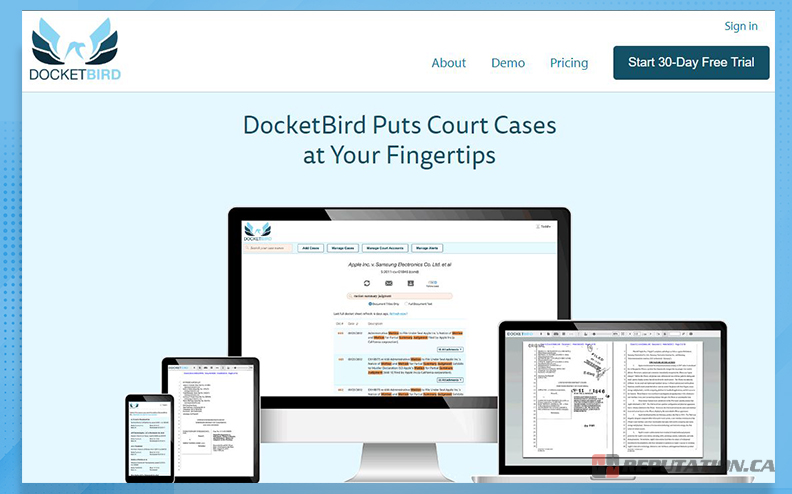
DocketBird is headquartered in Portland, Oregon, but it has access to cases across the country. While it might not be integrated with every court system in America, it can access the records for every state. The records can be accessed if the user has the case number for a specific claim, but users can also search by state if they know where the claim they are looking for was litigated.
Thus far, DocketBird does not provide an option that allows users to look for a case with a defendant or plaintiff’s name. Nevertheless, those names can be acquired since they are used to title the cases within the legal database. Ultimately, any documents acquired via DocketBird will be tied to your name if you were the defendant or plaintiff. Depending on the type of case, being the defendant is a major issue, especially if the case ends in the plaintiff’s favor.
Regardless, if you are tied to a case that is listed on DocketBird’s database, you might be eager to have it removed. Having a legal proceeding connected to your name can cause issues, so some people want theirs removed from DocketBird’s website to prevent people outside the justice system from finding the information. The question is: Can your name be removed from DocketBird?
Can You Remove Your Name From DocketBird?
Most data broker websites allow people to request their information be removed from the domain. These broker sites are generally obligated to offer this option since they profit from otherwise private information. Since these websites are private and provide information like addresses and contact data, citizens usually have a right to have that content removed to preserve their right to privacy.
The situation changes when the information pertains to a legal matter that the general public is allowed to know about. Insofar as PACER is concerned, the data on that network is usually impossible to remove because it is regulated by a government agency rather than a business. As a result, the information does not generate a profit but plays a role in continued legal matters.
This often leads people to assume no such option exists for DocketBird since it provides access to court documents. However, this is not necessarily true since DocketBird is not a government-sponsored application and does not share the same protections.
DocketBird does have an opt-out option that people can use to have their names removed from the website. While the most sensitive information is locked behind a paid subscription, plenty of data is revealed for free. Therefore, an opt-out function was essential to preserving the rights of American citizens since the application technically does not have legal protections. Accessing the opt-out function can be tricky since most websites like this try to hide it.
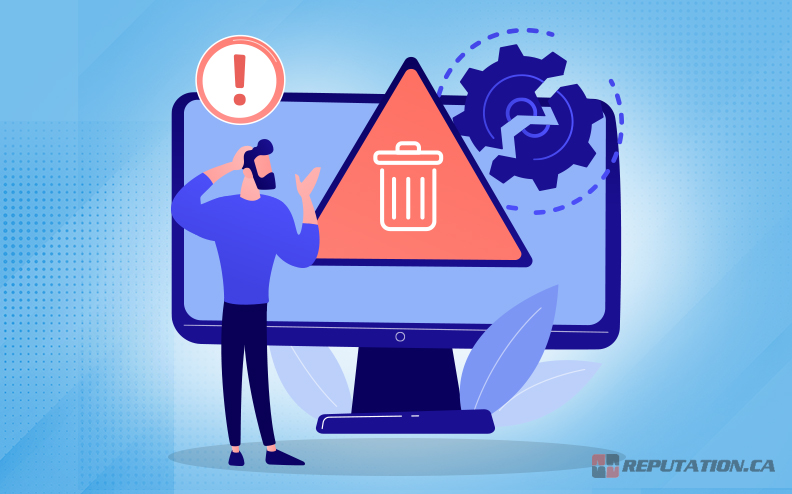
Unfortunately, DocketBird is no different since they force you to jump through a few hoops to locate the information you want removed. First, you must access the website and log into your account. Therein lies the first challenge since you likely do not have an account with DocketBird since you likely did not need one until now.
As previously mentioned, much of the information on DocketBird is locked behind a paywall so it can turn a profit. Fortunately, you can create an account without spending a dime since DocketBird offers a month-long free trial. You can sign up for the trial to access the full database and cancel the account before any charges on your payment card come through. Once you have created your account, you can freely access all the case files stored on DocketBird’s domain and file a takedown request.
This means the next step is locating the records for the case with your name attached to them. You need to track down the appropriate case file and ensure it is associated with your legal history. Attempting to take down a case record that has nothing to do with you will backfire. Once you have located the appropriate file, click on it and scroll down.
Near the bottom of the page, you should see a link that says “Request Removal” that you must click to advance the process. You will be redirected to a new page where you will be prompted to enter a valid e-mail address. Once you enter your e-mail address, you can click the button that says, “Request Removal,” and you will be redirected again to a page that lets you choose the removal option.
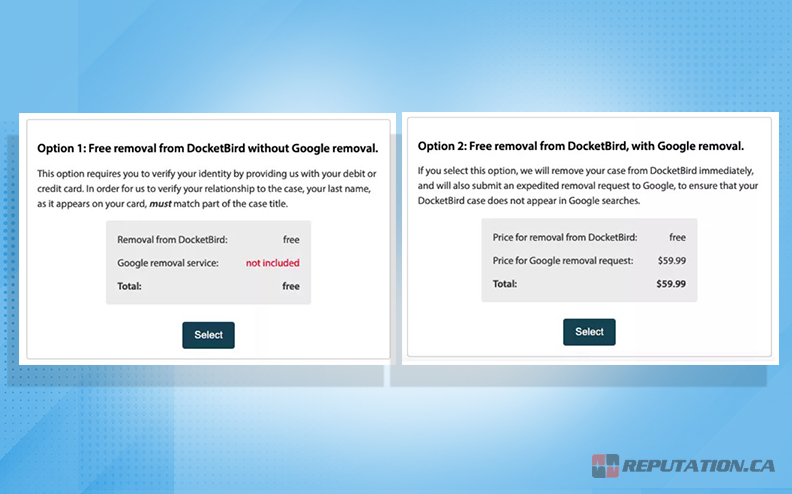
DocketBird offers 2 removal services:
- Option 1: There is a free removal option that will ensure the case file is removed from the website. You will have to provide your credit card information so they can confirm your identity pertaining to the case record you want removed.
- Option 2: The second option is the free removal plus an expedited removal request from DocketBird to Google. This ensures the records of their case file are removed from Google’s search results and cannot be referenced through Google searches. Unfortunately, this service costs $59.99, which might be a dealbreaker for some.
While paying $59.99 for the information to be removed from Google might seem frustrating, ensuring vestiges of the data are not visible to casual users is useful. It is possible to make this request separately from the request to remove your case records from DocketBird, but DocketBird’s service ensures the request comes from them and is expedited through Google’s official channels.
Ultimately, removing the court records should not cost you anything if you select the first option. While pulling down court records is possible when hosted on a 3rd party site, you might wonder why it is worth the effort. Unfortunately, it is more important than you might initially believe.
Why Does it Matter?
You might be curious why removing court records from any platform could be considered important. Most cases are a matter of public record, so pulling information might seem pointless in the long run. Unfortunately, this is not always the case since many cases (especially civil claims) can cause damage to your reputation if you were the defendant.
Being tied to a major court case where you were the accused party can cause serious problems since it immediately causes those around you to see you as a criminal or negligent party. This can cause individuals who need to trust you for your success to avoid associating with you. Some crimes are impossible to hide and are discovered through a simple background check, so hiding court records from a prospective employer is essentially impossible.
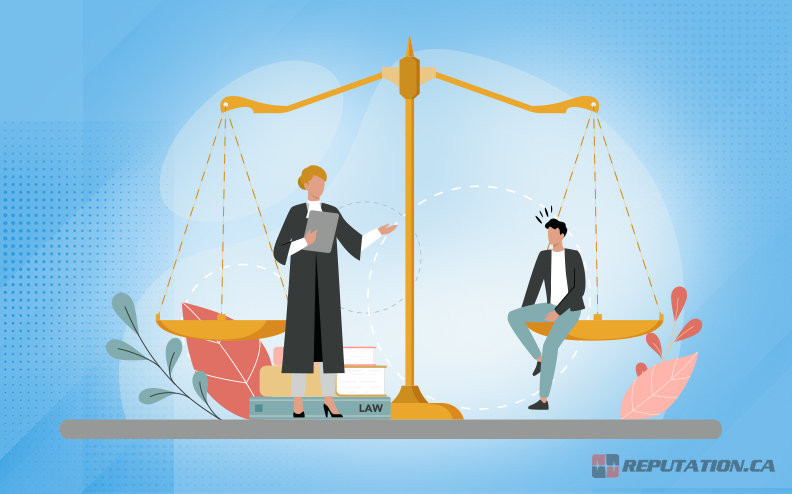
The problem with websites like DocketBird is that they allow the average citizen to access court records and turn that information against you. Modern society has adopted an unfortunate mentality that people are guilty until proven innocent, as opposed to vice versa, as the founding fathers intended. As a result, people are quick to demonize others as soon as any legal troubles from the past are revealed.
Another disturbing trend is that many people continue to believe someone is guilty even after they have been proven innocent. The mentality is that they would not have been accused unless they were actually guilty of something. Typically, this mentality is more prevalent when the legal battle is highly publicized. Unfortunately, websites like DocketBird make court records for less publicized cases more accessible to the general public.
Recovering from a lawsuit, especially a criminal case, is extremely difficult, and reducing the number of people who know about it is an effective tactic. You might have to employ more advanced reputation management techniques to reduce the impact caused by your legal history. However, removing the records from websites like DocketBird drastically reduces the number of people who can access them without an official background check or clearance with the justice system.
Take Your Reputation Back!
A history with the American justice system can cause a lot of problems for you concerning reputation. A large portion of the population willingly casts you as a villain even when you have done nothing wrong. Websites like DocketBird provide the common citizen with access to court records that government agencies typically maintain.
Allowing so many people access to your court records can wreak havoc on your reputation and warrant removal. Unfortunately, this is usually only the first step since you must undergo an intense effort to recover your lost credibility.

We at Reputation understand the importance of one’s public image and how easily it can be damaged whenever something goes wrong. We also know that issuing takedown requests on websites like DocketBird is only the first step toward repairing the damage. That is why we offer comprehensive reputation management services to individuals and businesses.
We offer various services to help you rebuild your standing with the general public and issue takedown requests on your behalf. There are no shortcuts when it comes to your public image, so visit our website and take your reputation back!




